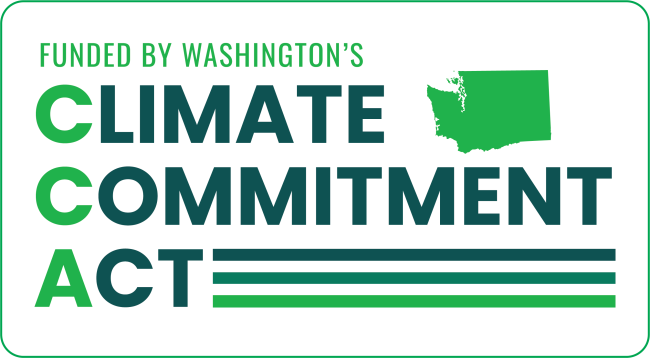E-Bike Lending Library and Ownership Grant Program
Learn how your governmental, tribal or nonprofit organization can apply for a grant to establish or administer an e-bike loan program.
The state legislature funded this grant program to help more people use e-bikes. Organizations receiving this grant can set up or continue administering e-bike libraries which provide a cost-free opportunity for people to try riding and integrating e-bikes into their lifestyles for a fixed period of time.
Grantees should design their lending libraries in collaboration with communities that will use them.
Call for projects is open: Apply for funding
Applications opened Aug. 15, 2025,and are now extended through Oct. 3, 2025. Those interested should submit an application on the application website.
Please read our grant guidance (PDF 724KB) for information about the application and eligible project costs.
About this funding
This program will provide approximately $3 million of state transportation funds over the '25-'27 biennium. There is no match requirement. Washington’s Climate Commitment Act (CCA) produces these funds. The CCA supports Washington’s climate action efforts by putting cap-and-invest dollars to work reducing climate pollution, creating jobs and improving public health. Learn more about the CCA at www.climate.wa.gov.
Eligible applicants
Eligible grantees under this grant program include:
- government grantees providing the program to employees as part of their commute trip reduction (CTR) goals.
- tribal governments providing the program to employees and/or low-income residents and those living in overburdened communities.
- nonprofit grantees serving low-income residents and/or overburdened communities.
“Overburdened communities” are geographic areas where vulnerable populations face combined, multiple environmental harms and health impacts.
Important dates
You can register now for the Aug. 21, 2025, Q&A session and the Aug. 28, 2025, Q&A session. Other important dates are listed below.
| Event | Date |
|---|---|
| Application opens | Aug. 15, 2025 |
| Q&A sessions | Aug. 21 & Aug. 28, 2025 |
| Application closes | Oct. 3, 2025 |
| Evaluation period | Oct. 3 – Oct. 30, 2025 |
| List of prioritized projects created | Nov. 1, 2025 |
| Awards made | Nov. 1 2025 |
| Projects close | June 30, 2027 |
Program requirements
Grantees must:
- Design their program in consultation with community members.
- Only loan out Class 1 and Class 2 e-bikes. Learn about the three classes of e-bikes in the Revised Code of Washington.
- Only loan out e-bikes to Washington residents.
- Loan e-bikes free of charge.
- Agree to submit trip data to the University of Washington for their program evaluation.
- Provide borrowers with written agreements that clearly communicate this program's rules and data sharing requirements.
- Report quarterly on the status and expenditure of each project.
- Comply with all applicable federal and state requirements as detailed in the Local Agency Guidelines (LAG) manual.
Additional considerations
- Reimbursement: Grantees are encouraged to submit monthly progress billings for projects so we can reimburse them promptly. Any grantee costs involved with managing an e-bike library prior to signing an agreement with WSDOT are not eligible for reimbursement.
- Overburdened communities: We identify overburdened communities based on requirements in Executive Order 24.11. The Overburdened Communities of Washington State Map shows where these communities are. The Office of Financial Management has more information about how we identify overburdened communities.
- HEAL Act considerations: This grant is subject to the HEAL Act. This means at least 35% of program funds must meaningfully benefit vulnerable populations in overburdened communities (RCW: 70A.65.230).
- Research: The University of Washington will evaluate this grant program. This includes collecting travel data from program participants.

Slow down – lives are on the line.
Excessive speed was a top cause of work zone collisions in 2024.
Phone down, eyes up.
Work zones need our undivided attention.
It's in EVERYONE’S best interest.
96% of people hurt in work zones are drivers, their passengers or passing pedestrians, not just our road crews.
